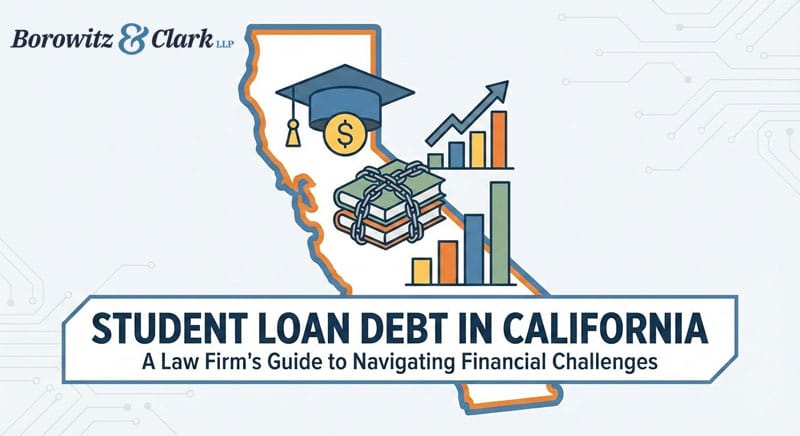Last updated: November 2025. This page is periodically reviewed by our consumer bankruptcy attorneys for accuracy under California and federal law.

Table of Contents
Can Student Loans Be Discharged in Bankruptcy?
Many borrowers can now discharge their student loan debt. Historically, discharging student loans was considered extremely difficult due to the strict interpretation of the “Brunner test.” However, the legal landscape changed significantly starting in late 2022.
Under new Department of Justice (DOJ) Guidance, federal student loan borrowers can now utilize a streamlined process to prove “undue hardship.” By submitting a standardized Attestation Form regarding your income and expenses, many borrowers can achieve a full or partial discharge without the need for a costly and contentious trial.
The Discharge Process: Adversary Proceedings & Attestation
While discharging student debt still requires filing a separate legal action within your bankruptcy case known as an “Adversary Proceeding,” the process for federal loans has been modernized to reduce litigation costs and stress.
Instead of preparing for a heavy courtroom battle against government attorneys, the new process allows us to present your financial data via a 15-page Attestation Form. If the government agrees that you meet the hardship criteria based on this form, they may stipulate to a discharge. This often allows the court to wipe out the debt efficiently, without you ever having to testify in a trial.
Federal vs. Private Student Loans
It is critical to correctly identify which type of loans you hold, as the bankruptcy rules differ between them:
- Federal Loans: Eligible for the streamlined DOJ Attestation process described above.
- Private Loans: Generally subject to stricter scrutiny under traditional legal standards. However, “non-qualified” private loans—such as those for unaccredited schools or amounts borrowed in excess of the “cost of attendance”—may be treated as standard unsecured debt and discharged exactly like credit cards or medical bills.
Important Note on Repayment Plans (SAVE/IDR)
Government income-driven repayment plans (such as the SAVE Plan, PAYE, or IBR) have faced significant legal challenges and injunctions throughout 2024 and 2025. Many borrowers have been placed in administrative forbearance while these programs are litigated.
Because the availability of these plans is currently in flux, bankruptcy may offer a more permanent and legally secure solution to your debt issues.
Are You Behind On Your Student Loans?
We have years of experience helping clients to significantly reduce their student loan payments, cure defaults, and even stop wage garnishments. Are you being sued for collection? We’ll help with that, too. You went to school to better yourself and get the career you wanted. Why let those loans bog you down and stop you from reaching your potential?
Give us a call (877) 439-9717 – We’ll walk you through the full menu of options for repayment and dealing with your defaulted federal and private student loans for free. If you choose to retain our services, we’ll handle your applications for repayment programs. We’ll fight to stop your lender from garnishing your wages and we’ll stand up for your rights if you face a collection lawsuit. We’re here to help alleviate the burden of your student loan debt.
